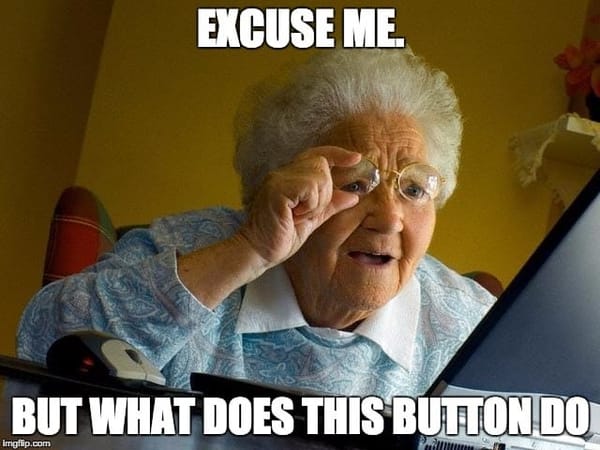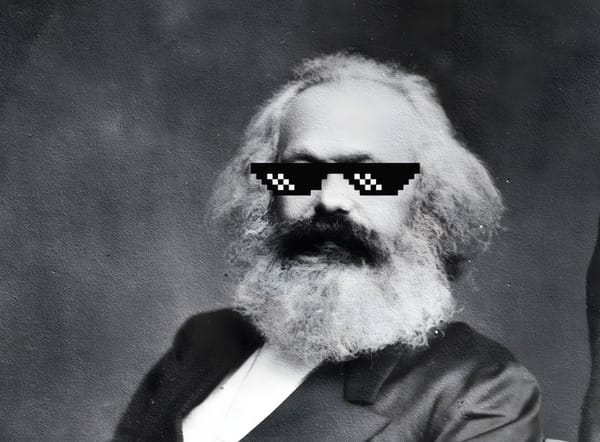WGA, SAG-AFTRA, and the Zero Interest Rate Fantastic Voyage

Originally Published July 18, 2023
So, here’s a quick (not quick) TL;DR (probably too long) for those wondering what is going on with Hollywood with all these striking strikers striking.
As of last week, both actors and writers are on strike for various reasons related to compensation, like residual payments on the content they create or help create. Although there is also some consternation about being replaced by robots, for the sake of this conversation, and because everyone else can’t talk about anything else besides AI, myself included, let’s leave AI out of this.
These residual payments, like for shows in syndication, the fancy term for re-runs in film and TV, allowed people who made good, or even outright bad shows, to still own a house in Beverly Hills, a pied-a-tere in Manhattan, and a ski-in/ski-out chalet in Aspen.
As more of us “cut the cord” for streaming services, these residual payments have dried up as creators and actors have been paid one-time up-front fees instead of ongoing residuals based on success. Meanwhile, for ongoing TV shows, writers and actors were being asked more frequently to exclusively work on the show they were being paid a lump sum for, even if that lump sum was for 30 weeks of work and that artist needed 52 weeks of work to get by, leaving a bit of a delta in the piggy bank.
This would be like if you showed up at your office (I know you don’t go into an office, you lazy !$%#$?) for your full-time job and was told by your boss that you were no longer an employee, but instead were now an independent contractor. And as an independent contractor, you would now be paid a single lump sum at the beginning of the year, 40% less than your previous salary, and also, you had to continue to work full-time and were not allowed to have a second job. You can see the issue. Either that or you are like, “Call the waaaaambulance, you Coastal Elitists! Get a real job!” Either way, you understand arithmetic, so let’s continue.
Traditional content producers (AKA what we olds know as linear television, or just “TV”) used to rake in ungodly sums of money from carriage fees paid by the cable companies. This is the money the cable company, and by extension, you, paid for your beloved channels. For instance, of your total cable bill, around $5.50 of that went to ESPN alone, 34 times higher than the average channel at $0.16, where you can watch people living below the poverty line hoarding junk because of unresolved childhood trauma or competing for money to pay their medical bills in hypercapitalist game show hell. This was the majority of revenue for these channels, along with traditional ad revenue, and that revenue has effectively evaporated as every company that used to make linear TV and film poured into “The Streaming Wars.”
You may think, “Well, that makes sense, all I watch is streaming; I’m watching you on a stream right now! Stream Stream Stream. Stream Stream Stream,” and for thinking that, you get an honorary MBA from the School of Hard Knocks. Congratulations.
You’re cool, but let’s back up.
We have just exited the era that will be known as “The Epoch of Zero Interest Rate Subsidized Wildly Illogical Business Plans.” (Patent Pending).
You can easily picture this era.
The year is 2014.
You are sitting on your couch watching an episode of House of Cards on Netflix (problematic?) while occasionally glaring at the DVD of Thor: The Dark World (also problematic?) lying on your coffee table that you had also rented via the mail from Netflix for $9.99 per month.
You think, “Wow, isn’t Kevin Spacey one of our greatest actors?! I wish HE had been in Thor: The Dark World… He is definitely going to work in Hollywood for the next 30 years! Also, I’m feeling peckish!”
Upon feeling peckish, you open up Doordash on your iPhone 5s and pay $15 for a large ten-meat variety pizza, breadsticks, and a 2-liter bottle of Coke, because you are kinda high and go hard in the gastrointestinal paint like that. You are feeling generous (also because you are kinda high and vibing hard off of Kevin Spacey’s performance) and leave a $5 tip.
Upon finishing your meal fit for a king (or yas queen), you get ready for the evening and call an Uber, which arrives shortly, driven by a cheery graphic designer who tells you how great his side-hustle driving for Uber is. You pay $10 to go 1,000 miles to your friend's house on the other side of town, where you listen to Yeezus on repeat (definitely problematic) via Spotify, for which you pay $9.99 per month for effectively every song ever recorded, and which you still pay ten years later today (SPOILER ALERT). After staying up too late murdering prostitutes in GTA V, you call a $14 Uber back home, $4 more than earlier because it’s a “surge,” and bask in your impeccable cultural relevance.
Welcome back. You just re-lived the good old days when beloved actors and musicians were neither sexual predators nor manic antisemites / (former) shoe designers, and where you could pay less than $50 for an entire evening of entertainment, food, and transportation.
This era of “The Epoch of Zero Interest Rate Subsidized Wildly Illogical Business Plans” has come to an end, some would argue rather abruptly, even though it’s been happening slowly over time, as the Federal Reserve (Shoutout the homie Jerome!) has increased interest rates, basis point by basis point, quarter after quarter, to get inflation under control.
Suddenly, companies like Uber, Netflix, Spotify, and the many others that rode waves of cheap venture capital to subsidize their products and services, and every single streaming service (now we are back on track) that spent untold billions of dollars annually on capital “C” Content to get subscribers and worry that whole profit thing later once they “scaled,” didn’t make as much sense. (They never made sense).
Making money wasn’t the objective, only the objective probability that you COULD make money in the future once you had enough people watching your stuff on the 65” black mirror in their living room. And why would making money have been the objective when you could finance whatever you wanted for 0% or near-zero interest as long as you had a pulse and a flashy deck with fancy pictures, and a superbro grindset.
Newly formed streaming services paid out massive seven and eight-figure multi-year deals to the most prominent creators, most of whom made basically nothing, or at least didn’t make anything that was, as NBC used to call it, “Must See TV” (I told you I was an old now), which would entice people to not only smash that subscribe button and stay subscribed, but also pay more money as the service slowly increased the prices to make up for the lost revenue from their previously lucrative cable carriage fee and ad businesses.
Meanwhile, Amazon and Apple also entered the market, for whom streaming services and the costly production of their aforementioned Content are mere rounding errors on their balance sheets and are only designed to sell you more detergent and iPhones, respectively.
It’s like David and Goliath, except Goliath (MAX, Paramount+, Peacock, etc.) is just fighting another much larger Goliath (Apple / Amazon / Netflix) carrying a Birkin bag and wearing a Rolex who just keeps paying David vast sums of money to keep slinging moderately sized rocks at the original Goliath’s nuts any time he tries to take a swing instead of going in for the kill.
And so here we find ourselves.
The assumption that these companies could swap out their frothy decades-long happy fun times in the cable and ad business for a fever-dream-like aspiration of making more money from monthly direct-to-consumer streaming subscribers was obviously false. Expendable income only goes so far; that’s why it’s expendable (not to be confused with The Expendables, a strangely ongoing and very mediocre action franchise preying on your nostalgia for 90s beefcake action. Hubba hubba.)
So do creatives deserve to be fairly compensated for their work? Yes, full stop, they do. I have worked with creatives in music, film, and TV my entire career, and I believe that with my full dadbod.
But these strikes are not just happening because creatives want more money. They are happening because the studios are wholly upside down on their all-in bets on streaming, and their shareholders have taken out the handcuffs and cattle prod, and the studios forgot the safeword. They don’t have the fat bags they used to have and are too busy mumble screaming, “PLEASE, FOR ALL THAT IS HOLY, STOP THE BLEEDING,” at their board members through the ball-gagged gimp costumes they stole from the prop warehouse.
SAG-AFTRA and the WGA are right to be fighting for equity. It needs to happen in other industries, too. Income inequality is a global issue that is increasing exponentially year over year. But these truly (Keanu voice) righteous warriors are fighting the good fight at a time when the executives they are fighting against are so thrilled that they don’t have to pay creatives right now that they are all (mostly all) walking around with full-on erections even without their Cialis.
The era the unions are are fighting for is quite literally over.
The things they want may not exist.
There will inevitably be some daylight in the end, as there is with most negotiations at loggerheads, but it will not get them back to the previous epoch when Kanye and wages were both still alright.
wtflolwhy :: July 18, 2023



